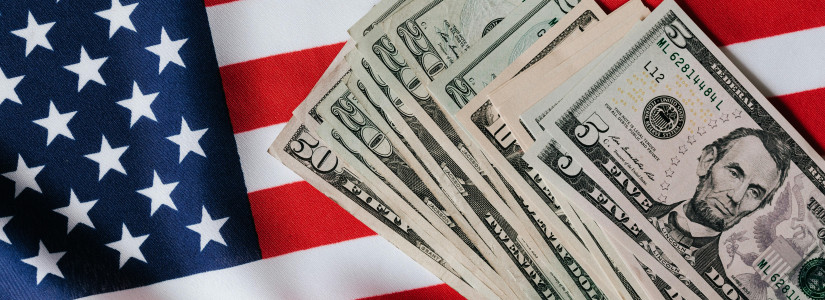Everything You Need to Know about Coping with Inflation
Inflation is one of the most pressing economic issues that a country can face. It can cause a devaluation of the currency, loss of jobs, and increased cost of living. The current global economic crisis has pushed inflation to the forefront of many people's minds. The Covid-19 pandemic and the political unrest in various countries have contributed to inflation rates. Here are some ways to cope with inflation:
1. Save Your Money
It may seem like an obvious solution, but having significant savings is vital to weathering an inflationary period. Besides, having extra money will give you more options and flexibility if your income does not keep pace with inflation.
2. Invest in Assets and Real Estate
One way to stay ahead of inflation is to invest in assets that are likely to appreciate, including property, stocks, and even some collectibles. By investing in assets, you can help to ensure that you maintain your purchasing power over time. However, remember to diversify your investments as no asset is guaranteed to appreciate, and seek professional guidance to avoid making investment mistakes.
3. Review Your Budget Regularly
It'll help you identify areas where you may be overspending and adjust your expenditure accordingly. If your income is not keeping up with inflation, you may need to increase your earnings through a pay rise at work or finding additional sources of income.
4. Live below Your Means
To protect yourself against inflation is to live below your means by spending less than you earn and saving the rest. When inflation rises, your income may not keep up with the rising living costs. For this reason, living below your means provides extra money to cover the increasing costs.
5. Purchase Durable Goods
One way to cope with inflation is to purchase durable goods that will last long, even as prices continue to increase. Things like furniture, appliances, and tools are all examples of durable goods. By investing in these items, you can save money in the end. When everything stabilizes, you can resell them for a profit.
6. Maximize Loyalty and Reward Programs
If you frequently shop at the same stores, sign up for their loyalty or rewards programs. This way, you can get discounts on your total purchase or earn points that you can later redeem for freebies or coupons.
7. Consider Buying In Bulk
If you have the storage space, buying in bulk can be a great way to save during inflation because when you often get a discount, which can help offset the higher prices, you'll be paying for goods. Also, you avoid the effects of daily price hikes on commodities.
8. Stay Informed
It is essential to stay informed about the inflation rate and the cause to make the necessary adjustments to your budget. Various governments publish inflation reports through their financial dockets. In addition, numerous websites provide accurate inflation data.
9. Learn to Negotiate for Lower Prices on Everyday Expenses
Many people do not realize that they can negotiate for lower prices on everyday expenses. For example, you can often get a discount on your cable bill by calling the customer service number and asking for a better rate. The same goes for car insurance, cell phone bill, and other monthly expenses.
10. Buy Insurance
There are a few different types of insurance that can help protect you from the effects of inflation, including:
- Health insurance: Health insurance will help you pay for treatment as medical costs increase.
- Life insurance: if you die, your life insurance policy will pay out a lump sum to your family to help them cope with the cost of living without you.
- Income protection insurance: if you cannot work due to illness or injury, income protection insurance will replace a portion of your lost earnings.
- Pension: a pension is a long-term investment that can give you an income in retirement. The sooner you start saving into a pension, the more time your money has to grow.
- Property insurance: if you own a property, it's a good idea to insure it against damage or theft. As the cost of repairs and replacements increases, property insurance will help you cover the cost.
Many people choose to invest their money, as this can help them keep up with the cost of living. Others downsize to a smaller property, which can save money on bills and maintenance costs. What's important is that you find a way to protect yourself from the effects of inflation. By taking out insurance and making smart financial choices, you can ensure you remain prepared for whatever the future holds.
Related Articles
Stay ahead of the curve











